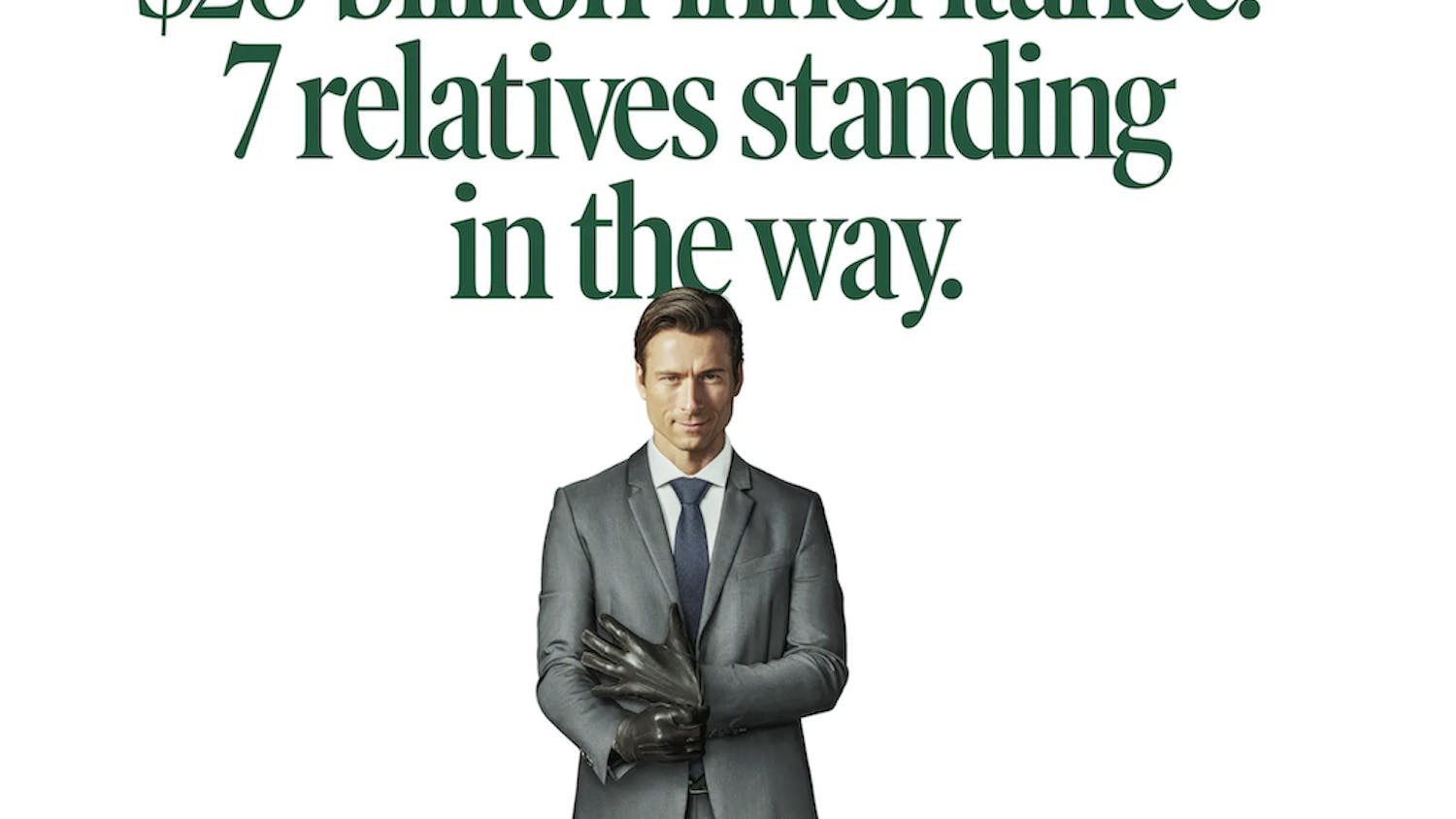Editor's Note: Elfbar Ideology is now a recurring series. Parts One and Two are available now.
Imagine if Paul Revere rode into Lexington only to realize that the British had already begun to sack the town. He continues into the fray: “The British are coming! The British are coming!”
This seems to be the situation of climate activism today. The British are already here: Some scientists say that we have already hit the “point-of-no-return” for the enduring health of our climate. The Paris Climate Agreement pinned it at 1.5 degrees celsius past pre-industrial levels. Now that we have smashed the ceiling, we are left to wonder why the sky didn’t fall.
From Slavoj Žižek: “We, old people, will most likely die before catastrophe strikes. But young people know that the catastrophe will happen in their time, decades from now. … The first step is for them to realize they can’t do anything to stop it.” The effects of climate change are already being experienced: millions of deaths, trillions of dollars in damages. Extinction is not coming. It has already begun.
In Too Late to Awaken, Žižek distinguishes two French words for ‘future’: futur, the future that will arrive given that pre-existing conditions continue, and avenir, a future that is possible given a radical divergence from those conditions. By definition, avenir can never be achieved — as we approach the futur, it fulfills its own prophecy, justifying all events as necessarily implied by the previous ones. Then we will always propel ourselves to the futur, and never make the sprint toward avenir. We delude ourselves, nonetheless, that there is some single make-or-break moment to stop climate change. That moment was today, yesterday, a decade ago, half-a-century ago. It is also tomorrow and every day after. The current trajectory of history implies that we are currently living in the beginning of the end times, and that our negligence reaffirms extinction every second. For the futur to be any different than the one we imagine at this point in history, we must change the existing tendencies that define its existence.
Robert Kirkman’s Invincible sees Anissa, an agent of the alien Viltrumite Empire, come to persuade protagonist Mark Grayson to colonize Earth. She says, “Human civilization has less than an 18% chance of surviving the next two centuries without the loss of billions of lives. … Large areas of this planet will soon be uninhabitable due to human greed.” She states this as fact, to say that only alien intervention could cause some radical break which would set us on the path to avenir.
Expectedly, the Viltrumite Empire is a callous and violent technocratic regime. It is akin to the global empires we know from human history — the Roman, the British, the American — which use astounding technological development to justify violent oppression of the entire known world. It supposes mutual benefit: We save you, you work for us. It asks us to cut our losses, to sacrifice our individual liberties so that the human race might live.
This is the same sacrifice that we have been making, consciously, for decades. The Marvin Gaye song, Mercy Mercy Me, recognized our situation in 1971:
Woah-oh, oh mercy, mercy me
Oh, things ain't what they used to be, no, no
Where did all the blue skies go?
Poison is the wind that blows from the North and South and East
Before he knew it, the world had changed. Perhaps he had expected that humanity had more time to make its radical break. But it turns out that we pass a new tipping point every day, descending one foot lower in an ongoing free-fall catastrophe. We justify it by denying our own agency: “It is the fault of institutions, they are responsible for this mess. We need to convince them to take urgent action.” It is long past the time, I think, to trust that profit-interested organizations will defy their raison d'etre. We need to consider what it would look like to save the planet ourselves, not by means of coercing institutions, but in spite of them.
As it is, the American citizen has little to no authority over what is done with their taxes and labor, while there exist perfectly good things in which they would otherwise be willing to invest: bridges, food banks, hospitals. I suspect that there are thousands of engineers who would rather dedicate their labor to climate solutions than to Amazon shareholder value. And there are millions, probably, that would rather invest in those engineers than in bombing the Middle East. We have lost authority over our own bodies and resources; perhaps this was tolerable, for some time, but the climate emergency requires us to reimagine society such that individuals have the power to address climate change on their own accord. Proponents of such a society ought to organize the exchange of resources necessary for dignified living — education, food, healthcare — independently of governmental and corporate interest. One could say to their neighbor, “I will feed you, if you clean the streets,” and they could say to their neighbor, “I will clean the streets, if you run the hospital,” and so on, such that individuals become gradually less dependent on a broken political machine and instead on a mutual desire for good living. This asks for the organization of self-sustainable communities: the kind in which you are not dependent on an authority (i.e. employer, police state) to survive, but instead from the voluntary exchange of labor. Perhaps the only path remaining is to create, rather than seize, the means of production, by which we can more easily assert ownership.
The problem remains that the government withholds tax money, and employers largely withhold the value of our labor, by force. But activists, labor organizers and mutual aid volunteers have proven that working people, with the right convictions, still possess the excess labor necessary to kickstart such a system. The proliferation of public(ish) technologies, such as artificial intelligence, have made it more possible than ever to generate significant value from little capital. Any serious advocacy for prioritizing the climate will require tremendous cultural change and political organization; this one, at least, follows naturally from an existing, and growing, cultural tendency without, at first, requiring the permission of reactionary institutions.
Irfaan Ali, the President of Guyana, snapped at a BBC reporter last month: “Even with our greatest exploration of the oil and gas resources we have now, we will still be net-zero [in carbon emissions]. The world in the last 50 years has lost 65 percent of all its biodiversity. We have kept our biodiversity. Are you valuing it? Are you ready to pay for it? When will the developed world pay for it?” Carbon neutrality requires great economic sacrifice in the existing order: the neglect of acres that could be cultivated, profits that could be made from fossil fuels. But the question remains if those resources are even necessary to sustain society in its most efficient form, with labor and capital valued exactly as they correspond to human benefit.
The Sacrifice, Andrei Tarkovsky’s final film, has a critic and self-proclaimed atheist Alexander (Erland Josephson) make a bargain with God to avert an impending nuclear holocaust. Alexander promises to burn down his house, abandon his family and go mute if it prevents the apocalypse. Later, he sleeps with an alleged witch (“in the best possible sense,” says his friend Otto) in another attempt to save the world. He wakes up the next morning to see that the day has started over again, and we are unsure if he has succeeded or to whom we can attribute this paranormal effect. Nonetheless, he makes good on his promises, and sacrifices the comfortable life that he knows.
It’s like Pascal’s wager: If there is even a slight risk that breaking his promises would mean the end of the world, then it would be foolish to neglect it. This is probably not the right interpretation, but it contextualizes our situation well. I have heard both that we have waited far too late to burn the house down, and also that if it isn’t too late, then we need to burn it now. There is scientific basis to believe that there is at least a slight risk of Earth becoming largely uninhabitable in our lifetime. If we thought like Alexander, then we would sacrifice our comforts in the interest of continued human existence. We would surrender ourselves to our Viltrumite oppressors, as many human cultures have done in the face of colonization to avert violent conflict.
But having caught a glimpse of the beauty and comforts afforded by the waning Pax Americana, it seems unlikely that we will find a powerful enough consensus to halt economic development. It is more persuasive, I think, to offer progressive solutions — ones that suggest the possibility of a future with an even greater degree of comfort, averting catastrophe and properly enfranchising the American citizen at once. To solve the world’s most pressing issues, we must maximize human potential, never squander it with voluntary poverty. Only human efforts can make up for human misconduct.
Eric Han is a sophomore in the College of Arts and Sciences. He can be reached at ehan@cornellsun.com.
Eric Han is a member of the Class of 2026 in the College of Arts and Sciences. He is the associate editor of the 143rd Editorial Board and was an arts and culture co-editor of the 142nd Editorial Board. His monthly column, Campus Dialectic, reviews recent Sun op-eds to speculate on cultural and political issues. He can be reached at ehan@cornellsun.com.











